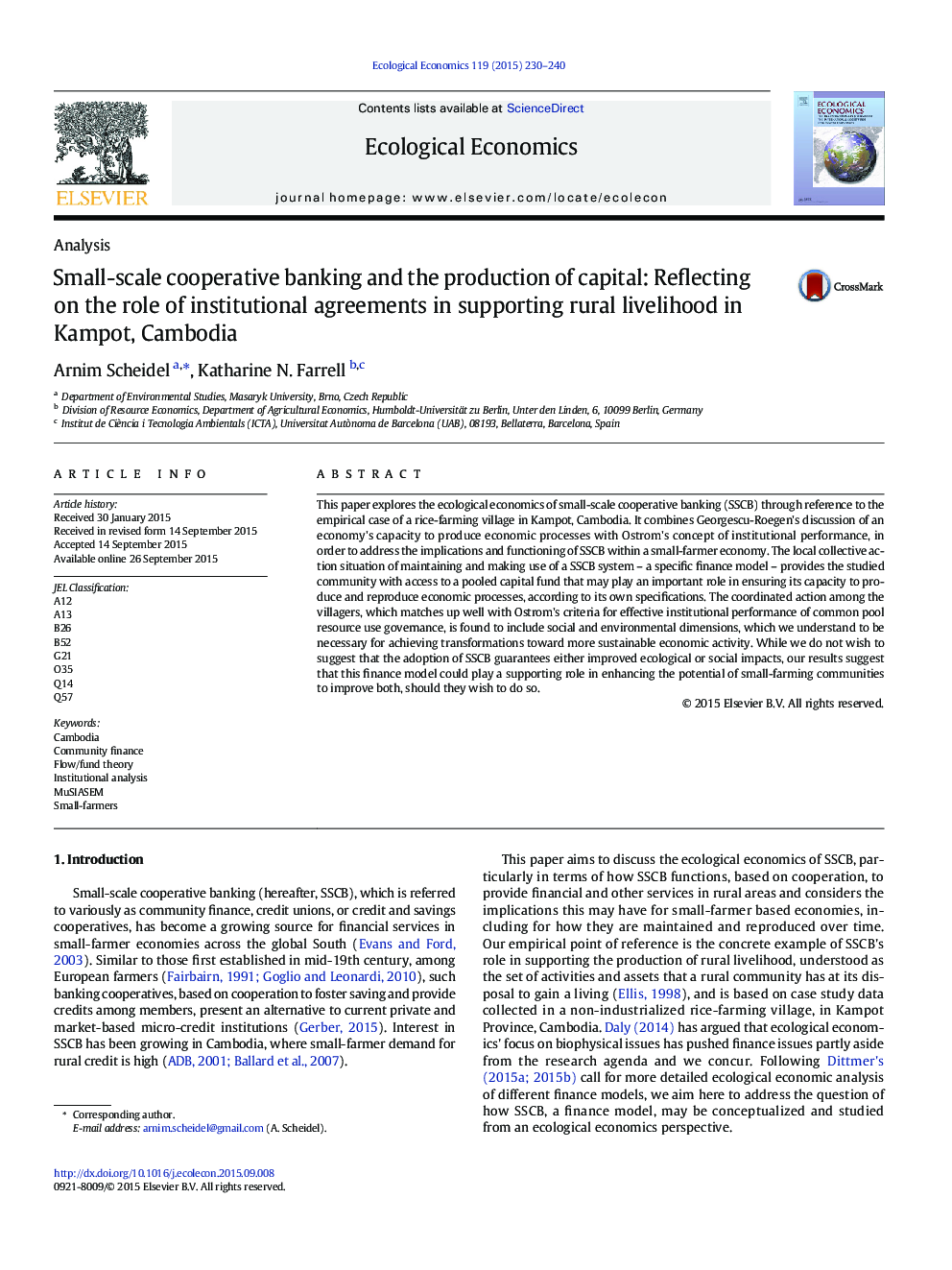| کد مقاله | کد نشریه | سال انتشار | مقاله انگلیسی | نسخه تمام متن |
|---|---|---|---|---|
| 5049244 | 1476360 | 2015 | 11 صفحه PDF | دانلود رایگان |
- We explore the ecological economics of cooperative banking in rural Cambodia.
- Our discussion combines institutional analysis with the flow/fund theory.
- Cooperative banking is found to increase a village's capacity to produce economic processes.
- Cooperative banking is found to have potential as an ecological economics finance model.
- Benefit flows and environmental impacts depend on collective choice and institutions.
This paper explores the ecological economics of small-scale cooperative banking (SSCB) through reference to the empirical case of a rice-farming village in Kampot, Cambodia. It combines Georgescu-Roegen's discussion of an economy's capacity to produce economic processes with Ostrom's concept of institutional performance, in order to address the implications and functioning of SSCB within a small-farmer economy. The local collective action situation of maintaining and making use of a SSCB system - a specific finance model - provides the studied community with access to a pooled capital fund that may play an important role in ensuring its capacity to produce and reproduce economic processes, according to its own specifications. The coordinated action among the villagers, which matches up well with Ostrom's criteria for effective institutional performance of common pool resource use governance, is found to include social and environmental dimensions, which we understand to be necessary for achieving transformations toward more sustainable economic activity. While we do not wish to suggest that the adoption of SSCB guarantees either improved ecological or social impacts, our results suggest that this finance model could play a supporting role in enhancing the potential of small-farming communities to improve both, should they wish to do so.
Journal: Ecological Economics - Volume 119, November 2015, Pages 230-240
